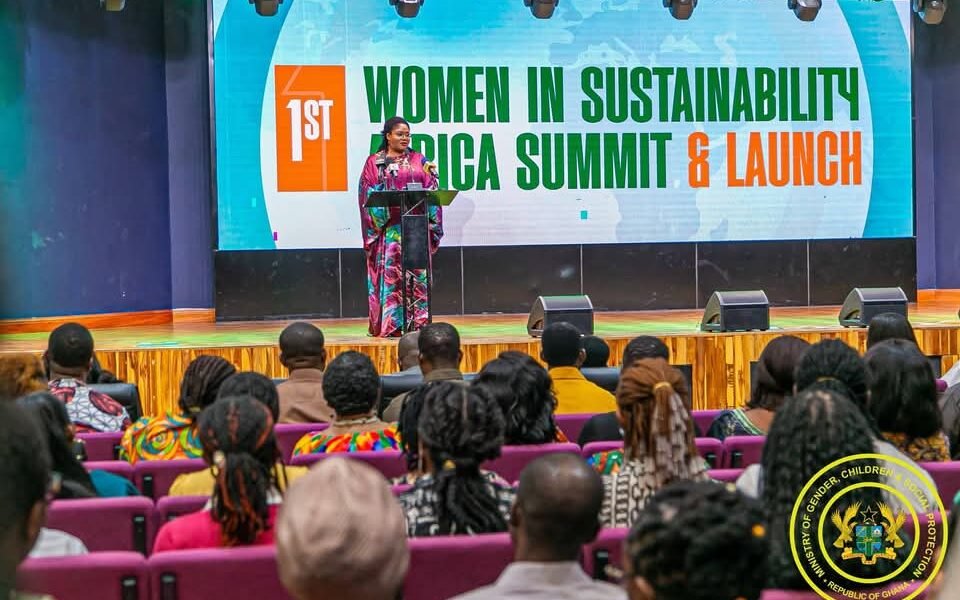News
Gender Minister participates in Women In Sustainability Africa Summit

The Minister for Gender, Children and Social Protection, Dr. Agnes Naa Momo Lartey, has reaffirmed Ghana’s commitment to gender equality and sustainable development during her participation in the inaugural Women in Sustainability Africa (WiSA) Summit recently.
The summit held under the theme: “The Role of Women as a Source of Labour and Agents of Sustainability.”
The high-level summit brought together policymakers, development partners, and gender advocates to highlight the vital role women play in advancing sustainability efforts across Africa.
Discussions centered on promoting inclusive policies and strategic programmes that empower women as key actors in sustainable development.
Addressing the summit, Dr. Agnes Naa Momo Lartey emphasized that the Government of Ghana, through the Ministry, remains steadfast in integrating gender perspectives into national development. She noted that the National Gender Policy (2015) serves as a foundational framework for empowering women, including women with disabilities, by ensuring access to secure livelihoods and economic opportunities.
She further highlighted the development of a national framework and toolkit for engaging men and boys on gender equality, which equips them to become advocates for change in addressing the inequalities faced by women and girls.
Touching on recent legislative milestones, the Minister stated that the passage of the Affirmative Action Act paves the way for increased women’s participation in decision-making and the creation of a more inclusive and sustainable society.
The Minister also noted the Ministry’s initiatives that link social protection with sustainability, including the Ghana School Feeding Programme, which not only promotes child nutrition and education but also supports local agricultural production and empowers women farmers.
Concluding her remarks, she added that the Ministry is collaborating with the Ministry of Environment, Science, Technology and Innovation (MESTI) and the Environmental Protection Agency (EPA) to ensure that Ghana’s National Adaptation Plan incorporates gender-responsive strategies to address climate change impacts on women and marginalized groups.